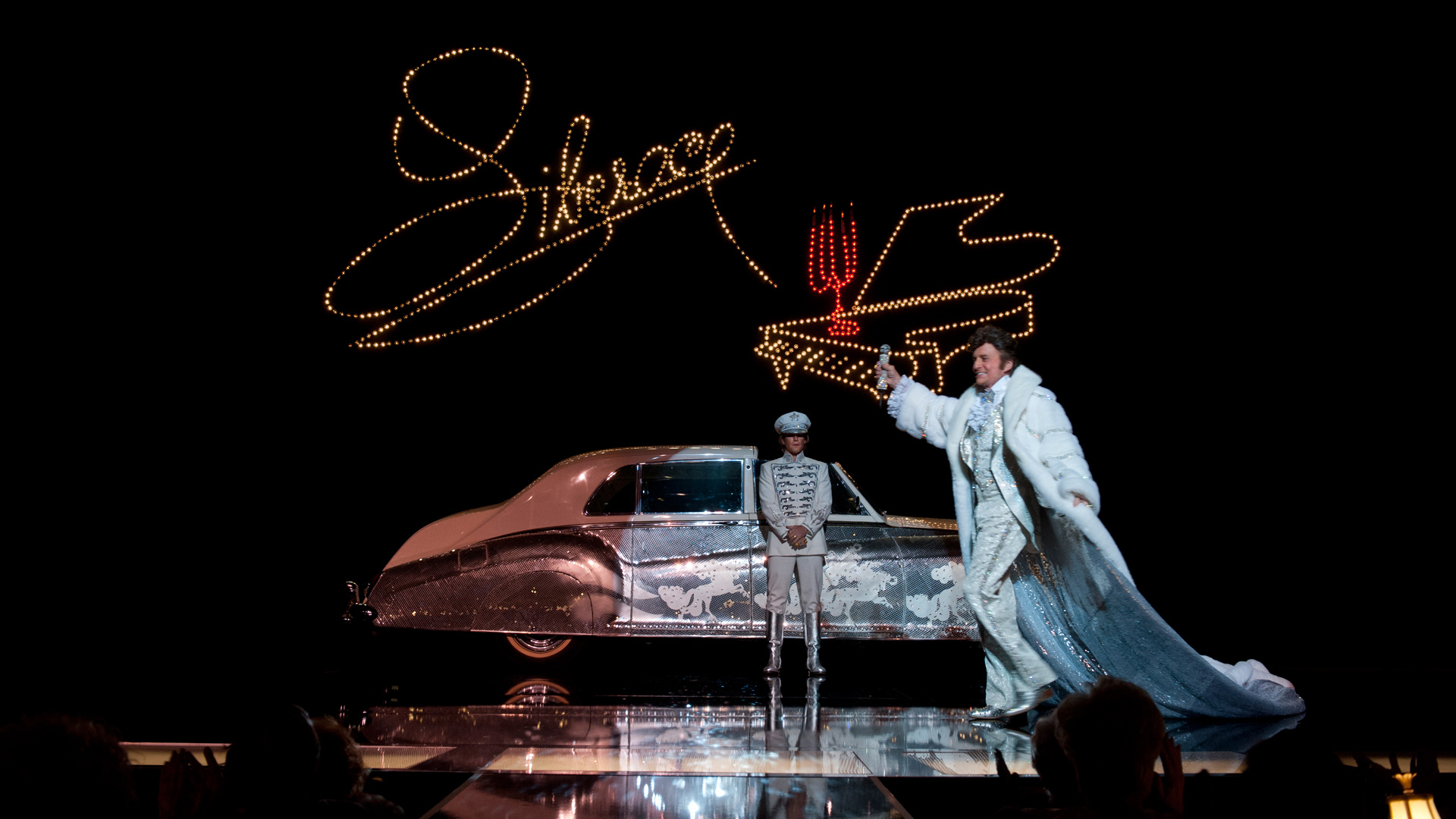Manuel is working his way through all the LGBT-themed HBO productions.
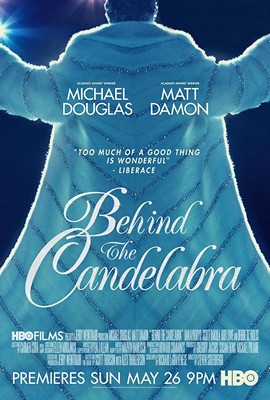 Last week we dipped our toes into Todd Haynes’s Mildred Pierce only to find that it’s oddly divisive, as is its leading lady, Ms Kate Winslet. Who knew? This week we look at a high profile project that was intended for the silver screen but given the current film market found itself in the not too shabby quarters of HBO: the Liberace biopic Behind the Candelabra, written by 2016 WGA Ian McClellan Hunter Award honoree Richard LaGravenese and directed by Steven Soderbergh.
Last week we dipped our toes into Todd Haynes’s Mildred Pierce only to find that it’s oddly divisive, as is its leading lady, Ms Kate Winslet. Who knew? This week we look at a high profile project that was intended for the silver screen but given the current film market found itself in the not too shabby quarters of HBO: the Liberace biopic Behind the Candelabra, written by 2016 WGA Ian McClellan Hunter Award honoree Richard LaGravenese and directed by Steven Soderbergh.
We have discussed at length various projects amply labeled “LGBT” that, to one degree or another, grapple with the question of representation: “Who gets represented and by whom?” could very well be the guiding question of this project. More often than not, the “who” has been unmistakably easy to locate. For the most part, we’ve seen stories of gay white males, played by a roster of A-list talent: Harvey Fierstein, Ian McKellen, James Woods, Al Pacino, Ralph Fiennes. By the time Candelabra was released, the question of who was portraying these characters (straight actors, at least most of the time) was bubbling up—we all know how that ended up blowing up by the time Stonewall came out. The question, obviously still beholden to issues of bankability, marketability, and Hollywood clout, may be a moot point but it nevertheless colors our reception of this Liberace biopic which creatively has four straight men behind it.
You see this most clearly in the film’s depiction—though that’s a bit of a stretch—of gay sex. We know HBO has never shied away from steamy sex scenes (we listed our faves a few weeks back!) but you wouldn’t know it from Soderbergh’s film which is quite prudish even as it luxuriates in its own lurid material. Take the first time Scott (Damon) stays over at Liberace’s estate; the older performer is shrouded in shadows, a threatening figure that prompts Scott to disassociate once he’s being serviced in the morning.
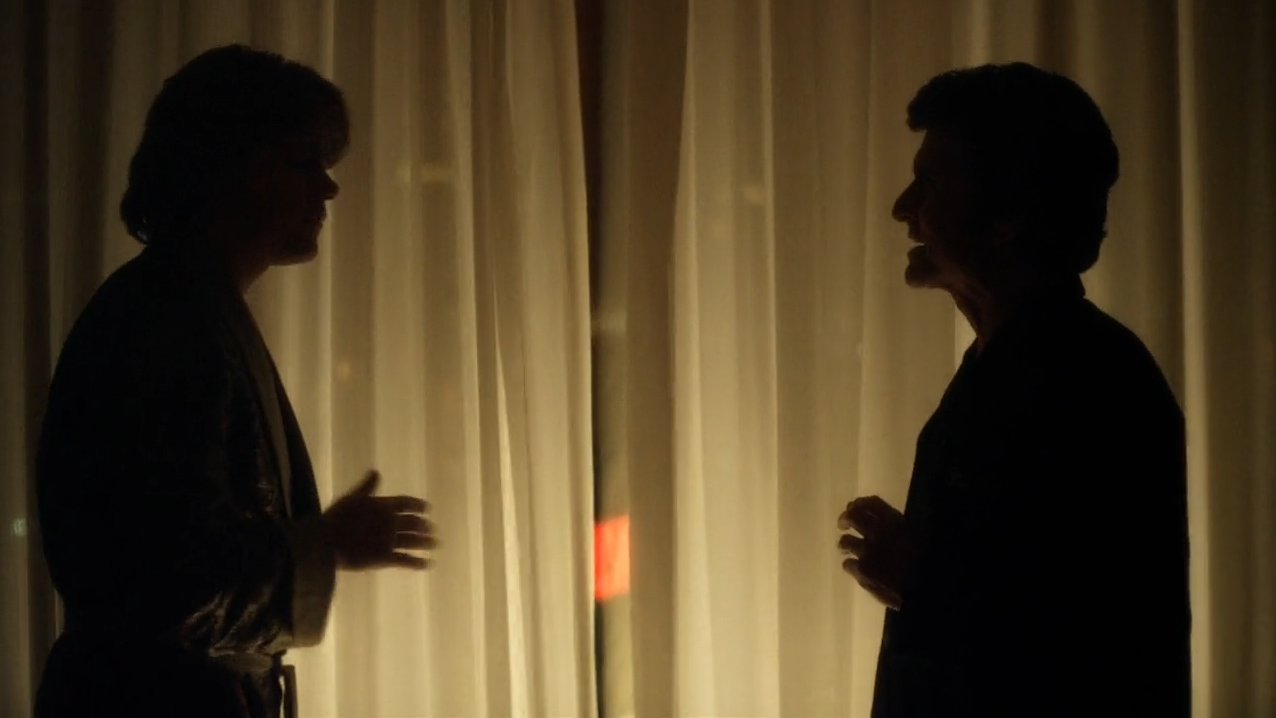
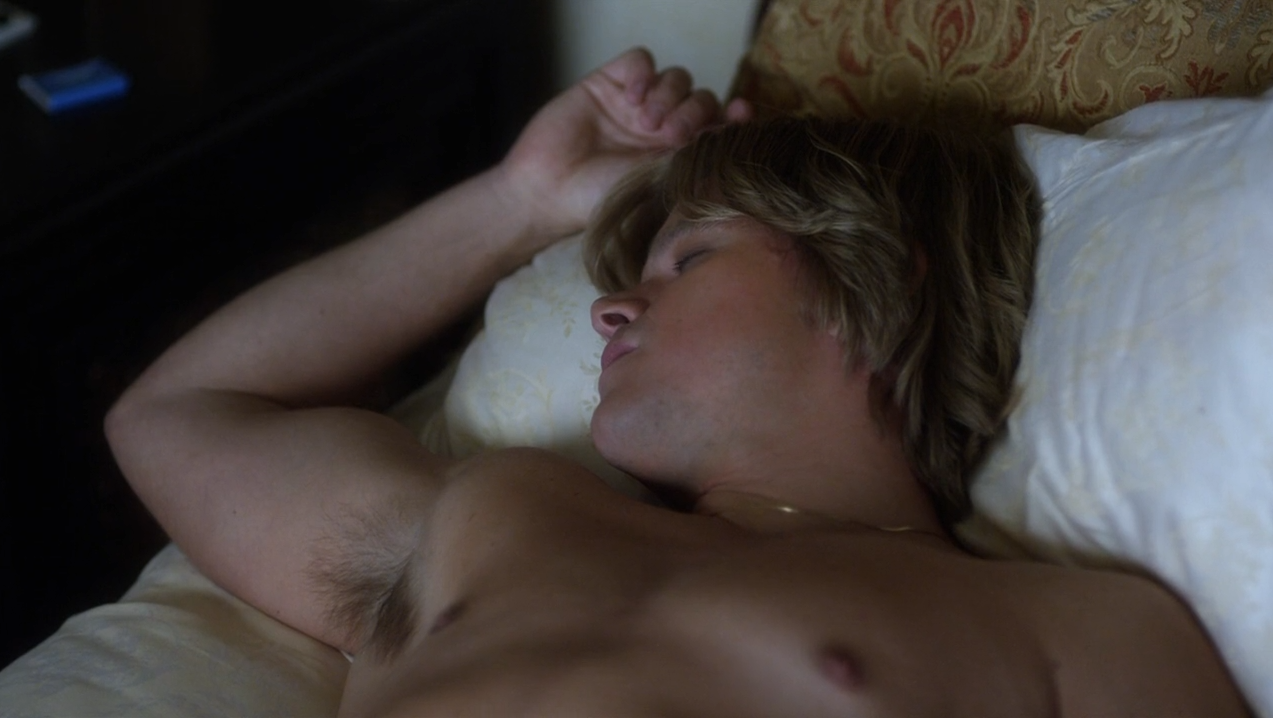
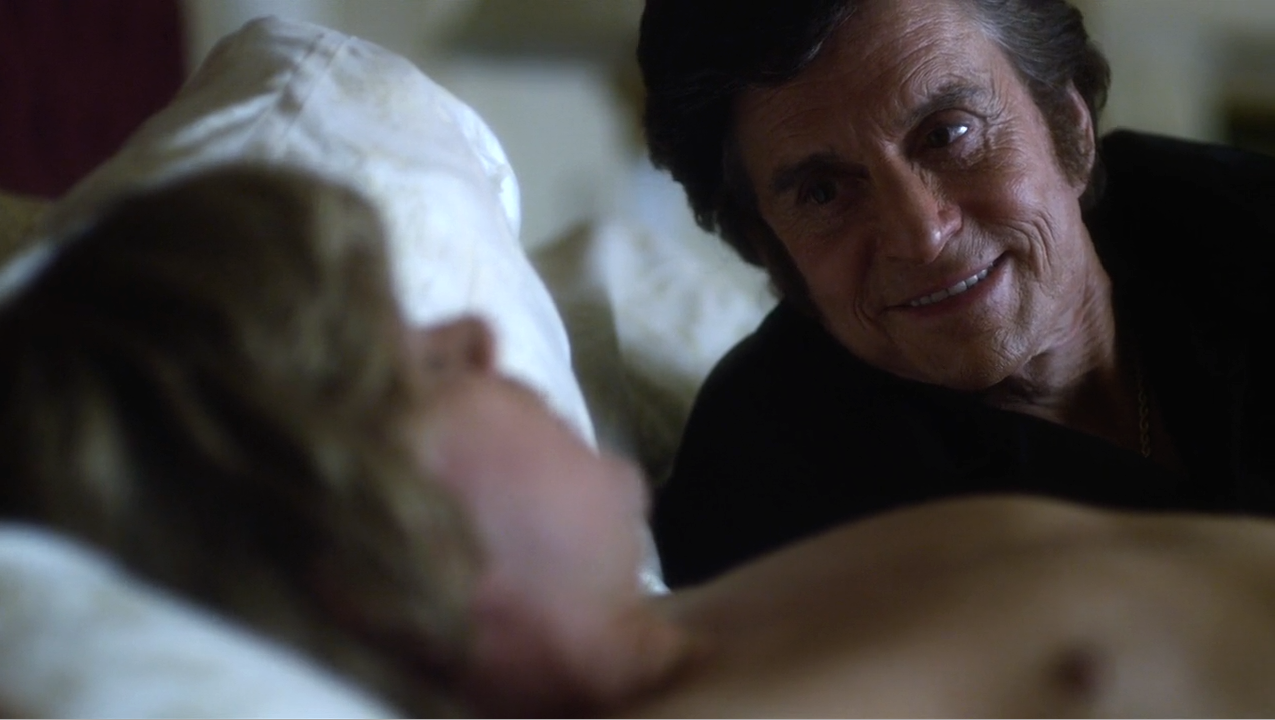
Every other moment of sexual intimacy is equally doused in noir-like lighting. Even simple moments (at the pool, in a limo) where we’re meant to buy the electric sexual chemistry between the two leads, this is all but absent. Douglas and Damon are able performers, and their emotional beats sell the May-December romance and its subsequent dissolution, but they always seemed to me unable to sell both Liberace’s thirst for sexual thrills (that descent into the XXX book store ranks up there with Shame’s gay bar in terms of sex shaming, though here at least it’s woven into the very fabric of the narrative) and Scott’s snippy cattiness (Cheyenne Jackson is so much better at this, nailing the passive aggressiveness that Liberace breeds in his all too brief scenes).
Unwittingly perhaps, Behind the Candelabra has ended up crystallizing, for me, the type of “gay” prestige content that so often gets cited when we talked about progress in terms of LGBT representation, one which imagines straight viewers as its first and foremost intended audience. One could even argue it’s a perfect fit for this material seeing as how Liberace’s glass closet depended on his appeal to a mostly straight audience, but it nevertheless treats its central gay character as an ever distant figure rather than a three-dimensional character: given the screenplay’s decision to follow Scott, Liberace—despite Douglas’s pitch perfect mimicry—remains wholly out of focus, both his neuroses and his proclivities unexplored and unexamined in any real way.
It’s a shame because the film does have its great moments (any time Rob Lowe or Scott Bakula are on screen) and, of course, this:
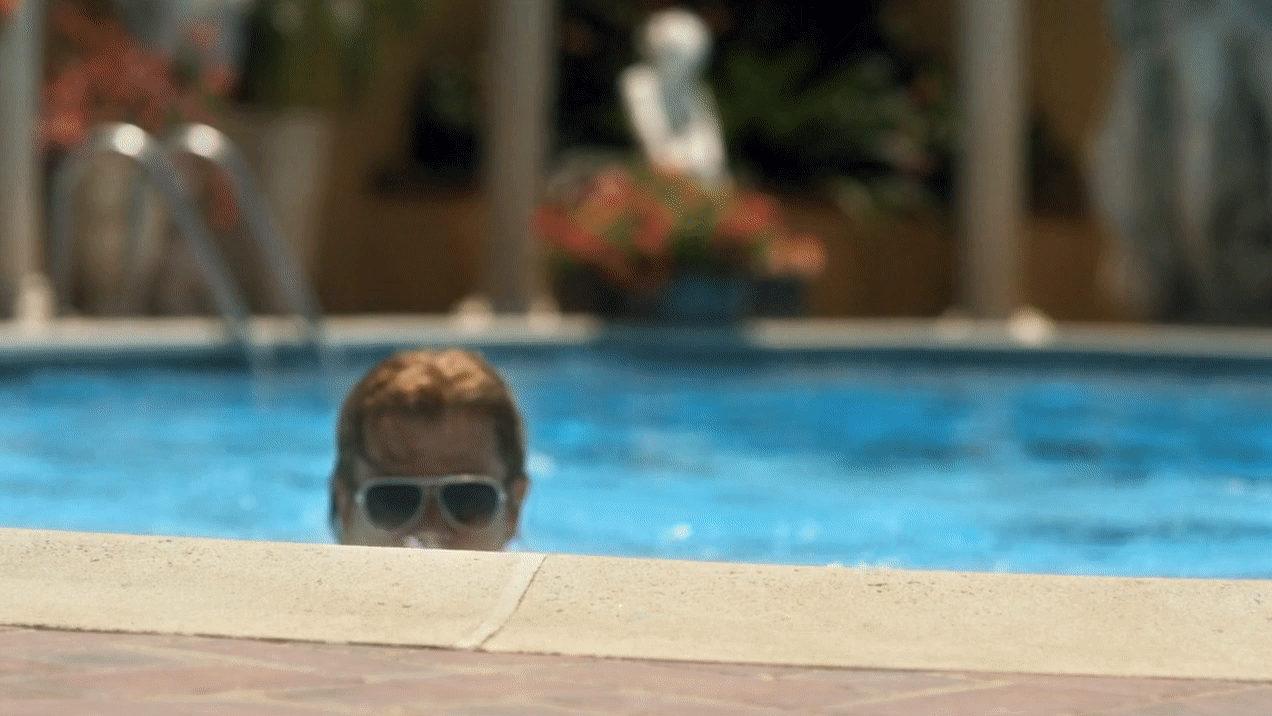

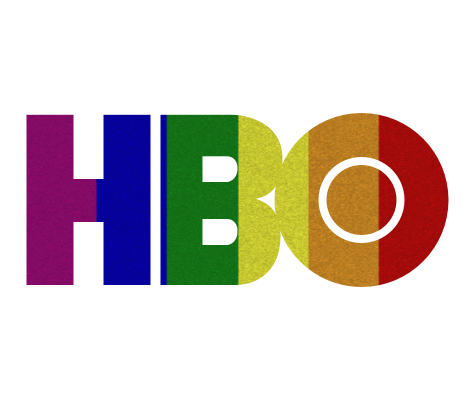
Fun Awards Fact: Michael Douglas won his very first Emmy for his portrayal of Liberace. This was his fifth nomination. His previous four nominations came from portrayals of detectives; his first three from the 1970s cop show The Streets of San Francisco (I have to admit I had to Google that one!), and his fourth one for playing a gay detective on Will & Grace close to thirty years later. One has to wonder if Douglas could have given McConaughey a run for his Oscar that year had the film been released theatrically—he may have easily knocked out Bale from the lineup don't you think?
Next Week: We take on The Out List where “high-profile members of today’s LGBTQ community reveal their struggles and triumphs of being ‘out’ in America” (Watch on YouTube). I’m mostly excited to watch a film that allows me to talk about Cynthia Nixon, Lady Bunny, Janet Mock and Jake Shears in the same breath.